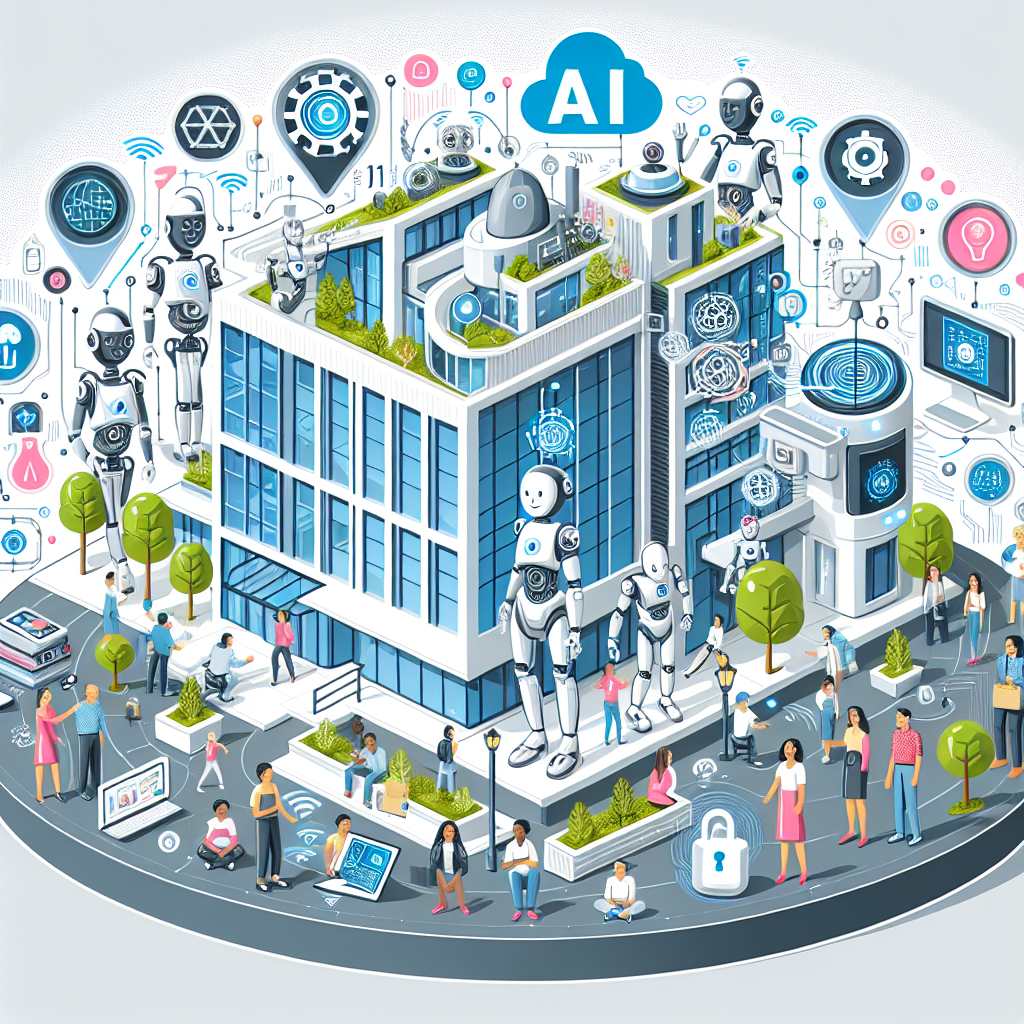The Role of AI in Enhancing User Experience in Buildings
Artificial intelligence (AI) has been transforming various industries and sectors, and the real estate industry is no exception. In the realm of buildings and facilities management, AI is playing a crucial role in enhancing user experience and improving operational efficiency. From smart buildings to intelligent systems, AI is revolutionizing the way buildings are managed and operated.
AI and User Experience
User experience in buildings refers to the overall experience of occupants and visitors as they interact with the building environment. This includes factors such as comfort, convenience, safety, and accessibility. AI can play a significant role in enhancing user experience by automating various building functions, predicting user behavior, and personalizing services based on user preferences.
One of the key ways AI is enhancing user experience in buildings is through the implementation of smart building technologies. These technologies leverage AI algorithms to analyze data from sensors, devices, and building systems to optimize energy usage, improve indoor air quality, and enhance building security. For example, AI-powered HVAC systems can adjust temperature and ventilation settings based on occupancy levels and weather conditions, ensuring a comfortable and healthy indoor environment for occupants.
AI can also improve user experience through personalized services and amenities. By analyzing user data and preferences, AI systems can tailor services such as lighting, temperature, and access control to individual users, creating a more personalized and user-friendly environment. For example, an AI-powered building management system can adjust lighting and temperature settings in an office based on an employee’s preferences, improving comfort and productivity.
In addition to personalized services, AI can enhance user experience in buildings by predicting user behavior and anticipating their needs. AI algorithms can analyze data from sensors and devices to predict occupancy patterns, traffic flow, and usage trends, allowing building managers to proactively adjust building operations and services to meet user needs. For example, an AI-powered elevator system can predict peak usage times and adjust elevator schedules to reduce wait times for occupants.
Overall, AI is playing a pivotal role in enhancing user experience in buildings by optimizing building operations, personalizing services, and predicting user behavior. As AI technologies continue to advance, the potential for improving user experience in buildings will only grow.
FAQs
Q: How does AI improve energy efficiency in buildings?
A: AI can improve energy efficiency in buildings by analyzing data from sensors and devices to optimize energy usage. AI algorithms can adjust HVAC settings, lighting controls, and other building systems based on occupancy levels, weather conditions, and energy usage patterns, reducing energy consumption and costs.
Q: Can AI help improve building security?
A: Yes, AI can enhance building security by analyzing data from security cameras, access control systems, and sensors to detect suspicious behavior and potential security threats. AI-powered security systems can identify anomalies, alert security personnel, and take proactive measures to prevent security incidents.
Q: How does AI personalize services in buildings?
A: AI personalizes services in buildings by analyzing user data and preferences to tailor services such as lighting, temperature, and access control to individual users. AI systems can adjust building settings based on user preferences, creating a more personalized and user-friendly environment for occupants.
Q: What are some examples of AI-powered building management systems?
A: Some examples of AI-powered building management systems include smart HVAC systems, intelligent lighting controls, and predictive maintenance systems. These systems leverage AI algorithms to optimize building operations, improve user experience, and enhance building efficiency.
Q: How does AI predict user behavior in buildings?
A: AI predicts user behavior in buildings by analyzing data from sensors, devices, and building systems to identify usage patterns, traffic flow, and occupancy trends. AI algorithms can analyze this data to predict user behavior, anticipate their needs, and optimize building operations to meet user preferences.

